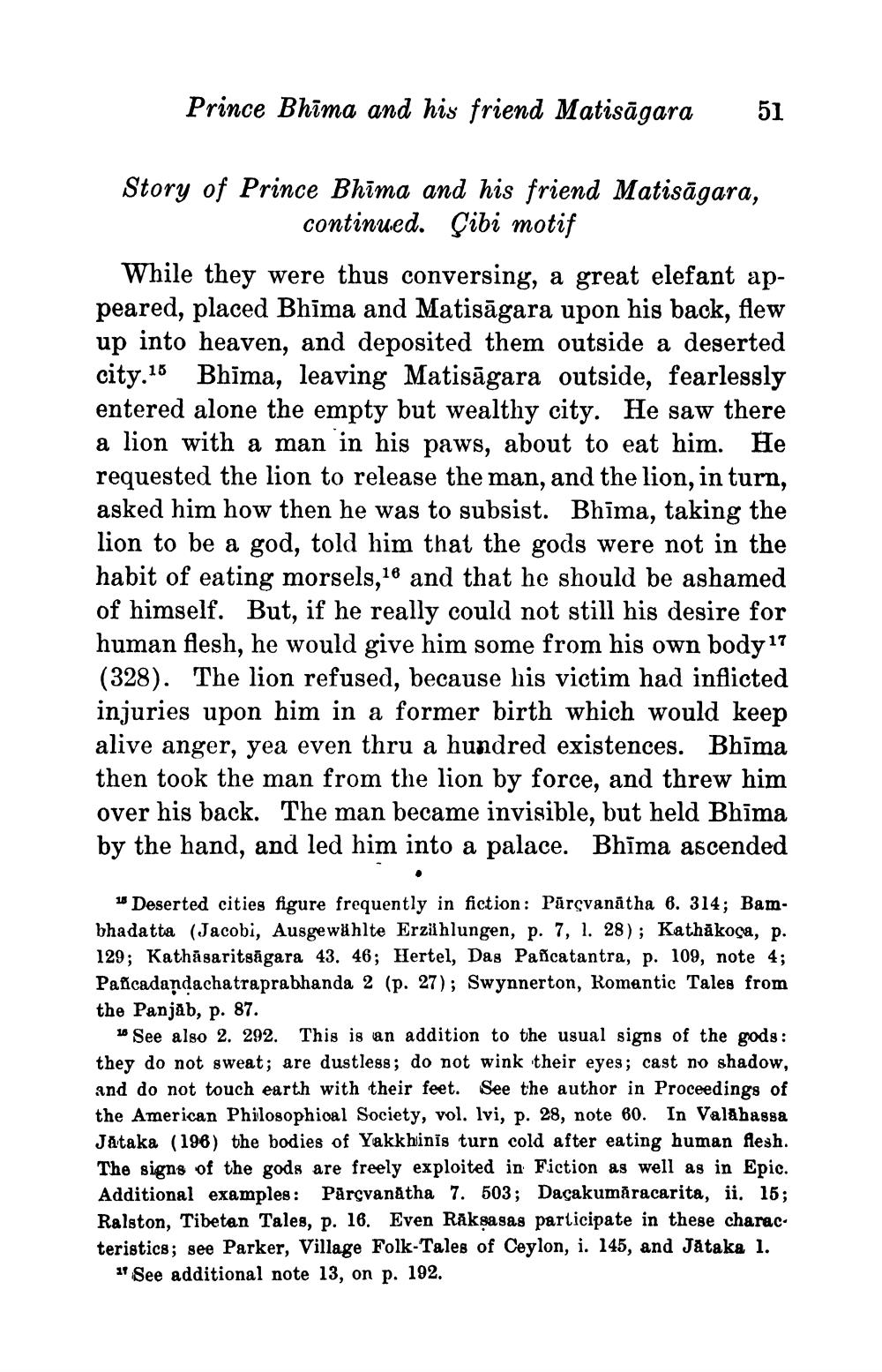________________
Prince Bhima and his friend Matisāgara
51
Story of Prince Bhima and his friend Matisāgara,
continued. Çibi motif While they were thus conversing, a great elefant appeared, placed Bhima and Matisāgara upon his back, flew up into heaven, and deposited them outside a deserted city.18 Bhīma, leaving Matisāgara outside, fearlessly entered alone the empty but wealthy city. He saw there a lion with a man in his paws, about to eat him. He requested the lion to release the man, and the lion, in turn, asked him how then he was to subsist. Bhīma, taking the lion to be a god, told him that the gods were not in the habit of eating morsels 18 and that he should be ashamed of himself. But, if he really could not still his desire for human flesh, he would give him some from his own body 17 (328). The lion refused, because his victim had inflicted injuries upon him in a former birth which would keep alive anger, yea even thru a hundred existences. Bhima then took the man from the lion by force, and threw him over his back. The man became invisible, but held Bhima by the hand, and led him into a palace. Bhima ascended
u Deserted cities figure frequently in fiction: Părçvanātha 6. 314; Bambhadatta (Jacobi, Ausgewählte Erzählungen, p. 7, 1. 28); Kathākoça, p. 129; Kathăsaritsāgara 43. 46; Hertel, Dag Pancatantra, p. 109, note 4; Parcadandachatraprabhanda 2 (p. 27); Swynnerton, Romantic Tales from the Panjab, p. 87.
* See also 2. 292. This is an addition to the usual signs of the gods : they do not sweat; are dustlegs; do not wink their eyes; cast no shadow, and do not touch earth with their feet. See the author in Proceedings of the American Philosophioal Society, vol. lvi, p. 28, note 60. In Valabassa Jataka (196) the bodies of Yakkhinis turn cold after eating human flesh. The signs of the gods are freely exploited in Fiction as well as in Epic. Additional examples: Pārçvanātha 7. 503; Daçakumăracarita, ii. 15; Ralston. Tibetan Tales, p. 16. Even Raksasas participate in these characteristics; see Parker, Village Folk-Tales of Ceylon, i. 145, and Jåtaka 1.
** See additional note 13, on p. 192.




